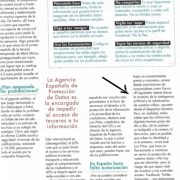Abogados expertos en sostenibilidad. LETRADOX®
Abogados expertos en sostenibilidad. LETRADOX®
LETRADOX®
ABOGADOS
Link video:
Watch our video on sustainability:
Sustainability. Abogados para adaptación e inversiones en sostenibilidad. LETRADOX® – YouTube
En el año 2015, la ONU aprobó la Agenda 2030 sobre el desarrollo sostenible.
Supone una oportunidad para que los países y sus sociedades adopten modelos de desarrollo que sean sostenibles con la preservación del medio ambiente, la erradicación de la pobreza, la atención a los más necesitados y conseguir un desarrollo equilibrado para todas las naciones.
El Acuerdo de París de 2015-2016 y la Agenda 2030 de Desarrollo Sostenible de Naciones Unidas marcan el camino a seguir para conseguir una economía sostenible, respetuosa con el medio ambiente y con los derechos al desarrollo de las personas y de la sociedad en su conjunto.
La sostenibilidad en el ámbito legal abarca un conjunto de normas transversales que abarcan diferentes ámbitos y especialidades.
La formación completa de nuestros abogados nos permite tener una respuesta profesional, eficiente y adecuada para resolver la adecuación de las empresas a la normativa relacionada con la sostenibilidad.
Añada valor reputacional a su empresa al alinearse con los valores de respeto al medio ambiente que impregnan esta normativa.
Las políticas públicas están orientadas a fomentar estos objetivos de la Agenda 2030; por ello la inversión en determinados sectores favorecidos por ellas será importante para hacer crecer su empresa o bien como inversión particular.
En LETRADOX®, nuestros abogados expertos en sostenibilidad, le asesoramos jurídicamente en sus inversiones en sostenibilidad. Movilidad sostenible, eficiencia energética, tecnología, energía… etc. Igualmente llevamos a cabo la adaptación y consultoría en las cuestiones legales relacionadas con sostenibilidad en su empresa.
La normativa de sostenibilidad abarca materias tan diversas como la contratación pública, procedimiento administrativo, urbanismo, agricultura, caza y pesca. También industria, ciencia e innovación, propiedad industrial, ámbito sanitario y farmacéutico, energía, fiscal y tributario, mercantil, transporte, educación…
En el ámbito empresarial el art. 39 de la Ley de Economía Sostenible 2/2011 determina que:
Con el objetivo de incentivar a las empresas, organizaciones e instituciones públicas o privadas, especialmente a las pequeñas y medianas y a las empresas individuales, a incorporar o desarrollar políticas de responsabilidad social, las Administraciones Públicas mantendrán una política de promoción de la responsabilidad social.
La manera de hacerlo será difundiendo su conocimiento y las mejores prácticas existentes y estimulando el estudio y análisis sobre los efectos en materia de competitividad empresarial de las políticas de responsabilidad social.
El conjunto de características, indicadores y modelos de referencia a que se refiere el apartado anterior deberá atender especialmente a los objetivos de transparencia en la gestión, buen gobierno corporativo, compromiso con lo local y el medioambiente, respeto a los derechos humanos, mejora de las relaciones laborales, promoción de la integración de la mujer, de la igualdad efectiva entre mujeres y hombres, de la igualdad de oportunidades y accesibilidad universal de las personas con discapacidad y del consumo sostenible, todo ello de acuerdo con las recomendaciones que, en este sentido, haga el Consejo Estatal de la Responsabilidad Social Empresarial, constituido por el Real Decreto 221/2008, de 15 de febrero, por el que se regula el Consejo Estatal de Responsabilidad Social de las Empresas.
Las sociedades anónimas podrán hacer públicos con carácter anual sus políticas y resultados en materia de Responsabilidad Social Empresarial a través de un informe específico basado en los objetivos, características, indicadores y estándares internacionales mencionados en los apartados anteriores.
Asimismo, cualquier empresa podrá solicitar voluntariamente ser reconocida como empresa socialmente responsable, de acuerdo con las condiciones que determine el Consejo Estatal de Responsabilidad Social Empresarial.
In 2015, the UN approved the 2030 Agenda on sustainable development.
It is an opportunity for countries and their societies to adopt development models that are sustainable with the preservation of the environment, the eradication of poverty, attention to the most needy and achieve balanced development for all nations.
The 2015-2016 Paris Agreement and the 2030 Agenda for Sustainable Development of the United Nations mark the way forward to achieve a sustainable economy, respectful of the environment and with the rights to development of people and society as a whole .
Sustainability in the legal field encompasses a set of cross-cutting standards that cover different fields and specialties.
The complete training of our lawyers allows us to have a professional, efficient and adequate response to resolve the adaptation of companies to the regulations related to sustainability.
Add reputational value to your company by aligning yourself with the values of respect for the environment that permeate these regulations.
Public policies are aimed at promoting these objectives of the 2030 Agenda; For this reason, investment in certain sectors favored by them will be important to grow your company or as a private investment.
At LETRADOX®, our expert sustainability lawyers, we advise you legally on your investments in sustainability. Sustainable mobility, energy efficiency, technology, energy … etc. We also carry out adaptation and consulting on legal issues related to sustainability in your company.
The sustainability regulations cover matters as diverse as public procurement, administrative procedures, urban planning, agriculture, hunting and fishing. Also industry, science and innovation, industrial property, health and pharmaceutical, energy, fiscal and tax, commercial, transport, education …
In the business field, art. 39 of the Sustainable Economy Law 2/2011 determines that:
With the aim of encouraging companies, organizations and public or private institutions, especially small and medium-sized and individual companies, to incorporate or develop social responsibility policies, Public Administrations will maintain a policy of promoting social responsibility.
The set of characteristics, indicators and reference models referred to in the previous section must pay special attention to the objectives of transparency in management, good corporate governance, commitment to the local and the environment, respect for human rights, improvement of labor relations, promotion of the integration of women, effective equality between women and men, equal opportunities and universal accessibility for people with disabilities and sustainable consumption, all in accordance with the recommendations that, in this regard , make the State Council for Corporate Social Responsibility, constituted by Royal Decree 221/2008, of February 15, which regulates the State Council for Corporate Social Responsibility.
The public limited companies may publish their policies and results in matters of Corporate Social Responsibility annually through a specific report based on the objectives, characteristics, indicators and international standards mentioned in the previous sections.
Likewise, any company may voluntarily request to be recognized as a socially responsible company, in accordance with the conditions determined by the State Council for Corporate Social Responsibility.
Póngase en contacto con nosotros sin compromiso.
Contact us
LETRADOX® Abogados
C/ Jorge Juan 141, 3ºA. Madrid
info@letradox.es
Tlfs: 912980061 / 645958948
www.letradox.com











